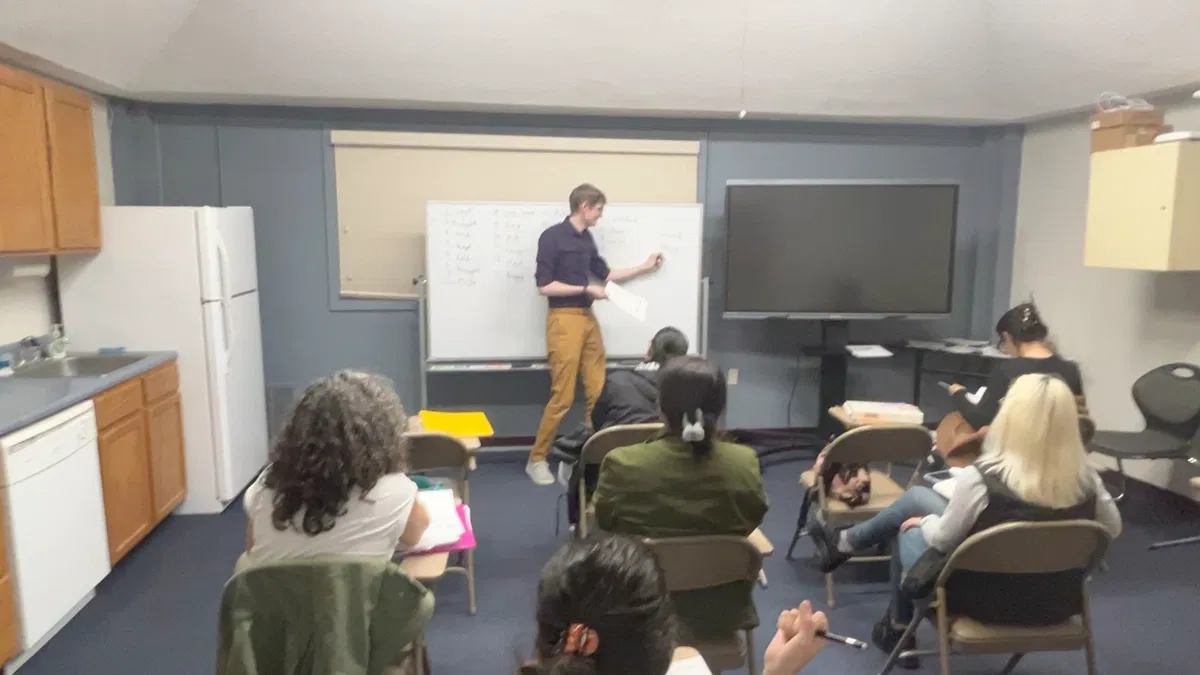Copyright ABC17News.com

COLUMBIA, Mo. (KMIZ) Columbia Public Schools’ Adult English Language Learner program secured funding through fiscal year 2026 after facing uncertainty due to potential cuts to adult education grants. The proposed federal budget included a 24% cut to adult education funding, reducing it from $642 million to about $486 million. The CPS program provides free online and in-person classes for adult students trying to improve their English language skills. The director says the funding is critical because the program serves hundreds of immigrant, refugee, and working-class families in Mid-Missouri. "We're alive, which wasn't 100% clear over the summer, but we did make it through fiscal year 26, which means we should be funding all the way through June 30," Program Director Noah Siela said. Student Gabriel Lima has been in the U.S. for a year and has been a part of the adult English Learners program for about two months. She said in that short timeframe, the program has been beneficial. "It's amazing I learn a lot and my English improved a lot because of this program," Lima said. "The material forcing you to speak and write and improve your listening. So after I begin here I think my goal is to improve a lot." The program has been serving Columbia for about 20 years and is funded through a combination of state and federal grants. Federal funding pays about 75% of the cost of the approximately $300,000 program with the remaining coming from the state. "I think we served 7,000 students statewide last year, that didn't have enough high school diplomas, had some English language deficiencies that put them in the workforce," Siela said. Siela said the cost-per-student is around $1,600, which is much lower compared to other programs in the state that cost $7,000-$8,000 per student. Last year the CPS English Learners Program served about 250 students, according to Siela To secure continued funding, Siela said he and others spent the summer advocating for the program and raising awareness of its importance. "Our enrollment doubled this year which is a great problem to have. It's strange to be having an influx of students when there's so much uncertainty, but I think that's a testament to our teachers and our staff of providing an environment for our students that is beneficial," he said. While funding is secured through the end of June next year, future support remains uncertain amid the ongoing government shutdown. Siela said the program has paused its application for the next three-year grant cycle. "Normally that would happen in December but we start thinking about it because applying for a grant is a pretty big deal, but there's so much uncertainty with the current shutdown," Siela said. "I'm not even really preparing for it because we could get new chunks of information that could send us going in a lot of different directions in terms of how we apply for a grant, the funding available and how many students we plan on serving," Siela said the three-year grant provides about $10 million in funding for about 28 statewide programs. He said the CPS program normally receives $300,000-$350,000. He said when he applies, he is going to ask for more funding. "You got to think optimistically when you're applying for a grant because if you think pessimistically you're going to short yourself," he said. "I was going to kind of swing for the fences because I know that with more money that means more students we could serve and I think there's a need for it just based on our role at numbers this year." Siela said he will likely apply upwards of $400,000. Carryover funds, which are appropriated by the state are often used when there is funding left over from programs across the state. Siela says that money was not an option this year. He said he usually uses it to hire part-time teachers since there is always a need for additional staff. "I don't have that this year, they're being conservative with that," Siela said. However, Siela said that lack of carryover funds is not due to the government shutdown and is rather people who manage the grants in Jefferson City. He believes they are being more cautious this year about how they want to send the funding out. Lima said future funding for the program is essential. "If you live in the United States you have to speak English, especially if you live in Missouri because we don't have much influence of another countries here, like in Florida, " Lima said. If the program were to come to a halt due to funding cuts, Lima said it would affect those who can't afford to pay for an English learning course. "It's going to be terrible because many people, immigrants that come here, they don't have money to pay for an English course," Lima said. "It's really expensive to that opportunity to study for free I think is the most important thing in our life as immigrants now so if it's finished that would be terrible."



